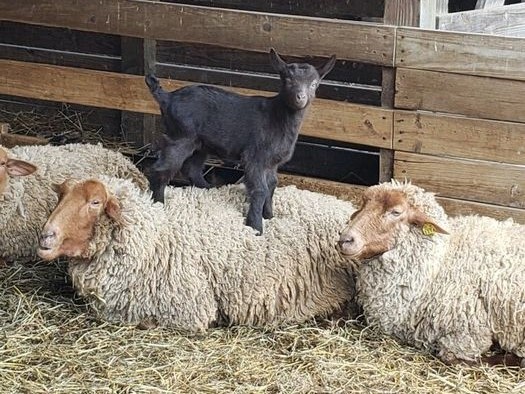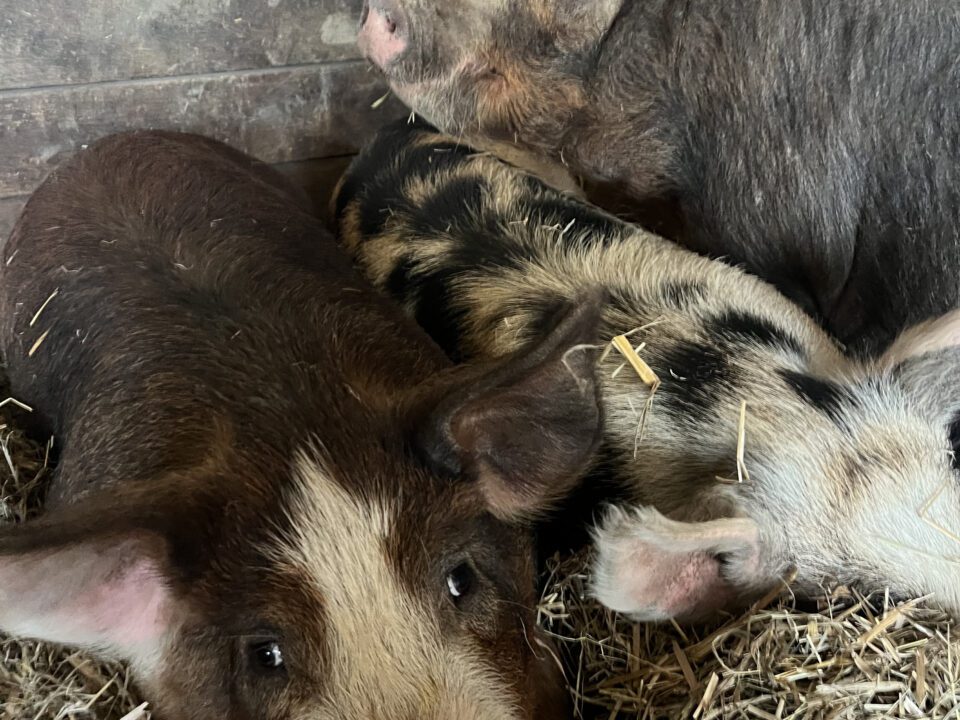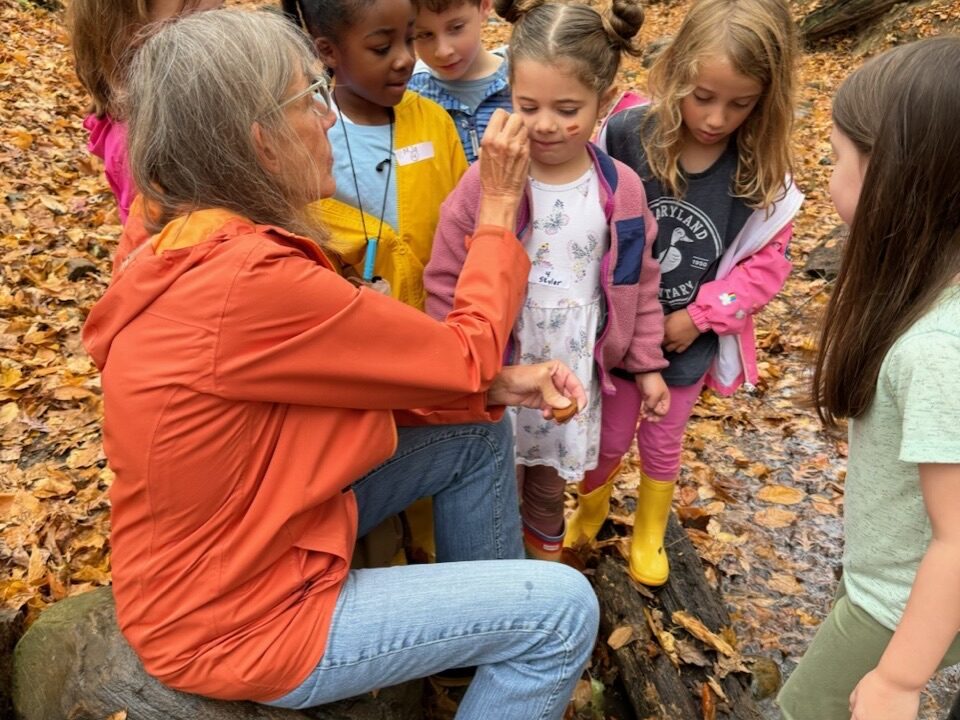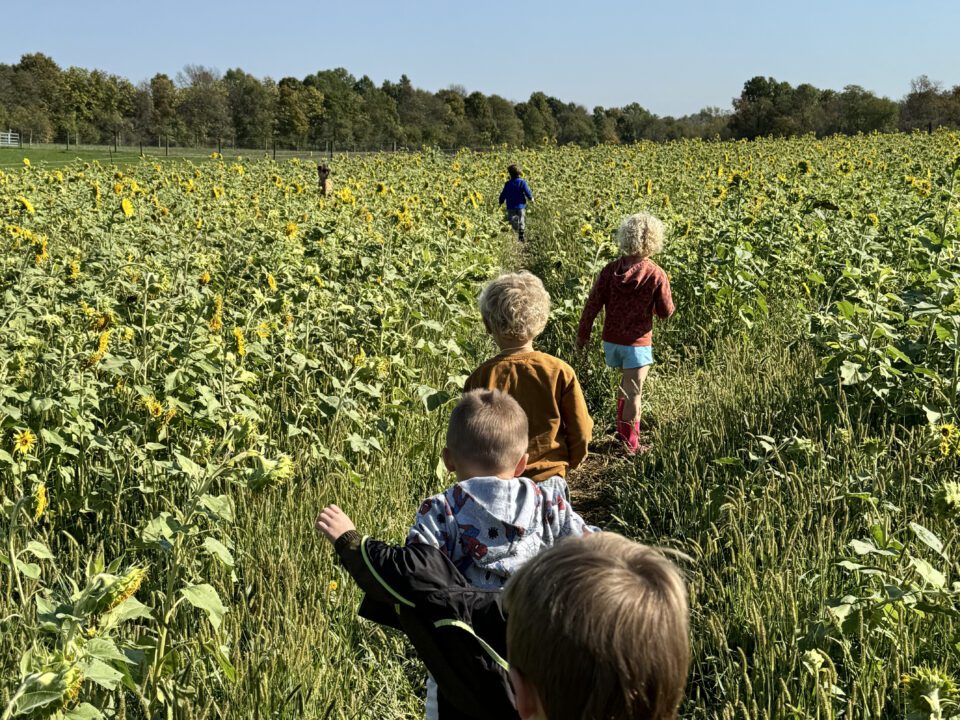
Lightning Storm Helps Green Stratford’s Pastures
April 20, 2013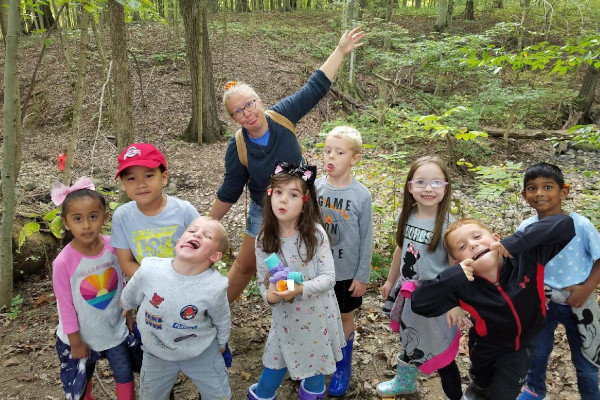
Having a Picnic, Despite No Brownies
June 15, 2013Published in The Delaware Gazette: May 18, 2013
We were becoming a little anxious at Stratford Ecological Center on Liberty Road as there was still no goat kids as the end of April approached. There is always the fear that the buck was infertile, and we would miss out on a crop of kids. It was reassuring to check our records and find Apollo the buck, joined the nanny goats on Thanksgiving weekend. With a gestation period of 150 days we still had plenty of leeway. As the days shorten in the fall, the does come into heat for 1‐2 days every 18‐21 days.
On April 27 Lolita presented us with buck and doe twins. They resemble their father and have white coats. Just this week Lucy also had a buck and a doe. We created a small holding pen within a bigger pen, a practice referred to as “jugged.” This keeps the family closer together, and guarantees the young kids will drink mother’s first milk, with all its antibodies to protect them. The remaining nannies, except Liberty, have nicely rounded sides and should soon drop their kids. We decided to reduce the number of “teenage” goats and two were sent to Dee Jay’s Organic Processing. Each yielded about 20 lbs. of meat, a lower amount compared to a fall sale after a summer on pasture.
The ewes and 18 lambs are doing well. The ewes were sheared on May 1 and Farmer Jeff trimmed their hooves. Foot rot is hard to prevent in sheep and six ewes needed medication. The one sure way to prevent it is to keep the sheep moving frequently to new grazing. Roxy our sow lost her companion this week, as the boar was sold at the auction barn in Mt. Vernon. He is now a year old and weighs 70‐80 lbs. more than he did when he arrived. Roxy should not be alone for long, as her babes are expected in June.
It is a pleasure to drive along the freshly graveled lane to the farm after all the bumpy winter rides. A female turkey was spotted in the woods near the swamp, as well as a barred owl perching in a tree and swiveling its neck to watch the progress of a car. The early wild flowers bloomed later this year, but the wild blue hyacinths are right on schedule and at their best now. The season seems even more fleeting if you are not at Stratford every day to enjoy sights like the hillside of white trillium.
Field #1 has been disked, then harrowed with a spike‐toothed harrow, and planted with oats and alfalfa. Later on it will be top seeded with orchard grass. This year we will not participate in the Blue River Hybrids Organic Seed corn trials, as their mid Ohio trials will take place at OSU. However, we hope to buy our seed from them at a favorable price. The corn will be planted as soon as conditions allow in half of Field #5, with the remainder left in grass. We will also plant corn in half of Field #7, where the other half was planted in spelt last fall.
The rhubarb beside the Giving Garden has gone to seed and the heads will be removed. We can expect a light cutting afterwards, but the rhubarb is only two years old and still establishing itself. The asparagus thrived under the “corn stalk” straw and provided some delicious meals. The temperature dipped to 31.5 degrees the night of May 11, but we “skated out” with no apparent harm to anything.
The boxes that make up our new bee hives have been stained with linseed oil rather than painted white. They are easier to maintain and they last longer. The 20 hives will be placed in sets of 5 in areas offering them protection from the west wind, has a southern exposure, and far enough apart to allow us to rear Queen Bees and prevent disease spreading. The wind and sun elements are particularly important in the winter, because if the bees are warm they start producing honey earlier in the spring. Wild bees build their hives in trees at a height of fifteen feet to catch the sun when the trees are leafless. Volunteers interested in bee keeping should sign up on our bee list, in order to receive information about educational opportunities and keep abreast of the latest developments.
It seems Saturday mornings this spring have been humming, not with the bees which are due later this month, but with adults and children attending a variety of programs. It is exciting to know we are no longer the best kept secret in Delaware County, and that so many people are taking advantage of the opportunities to get closer to their food source. Please know you are welcome to visit Monday through Friday, too.


